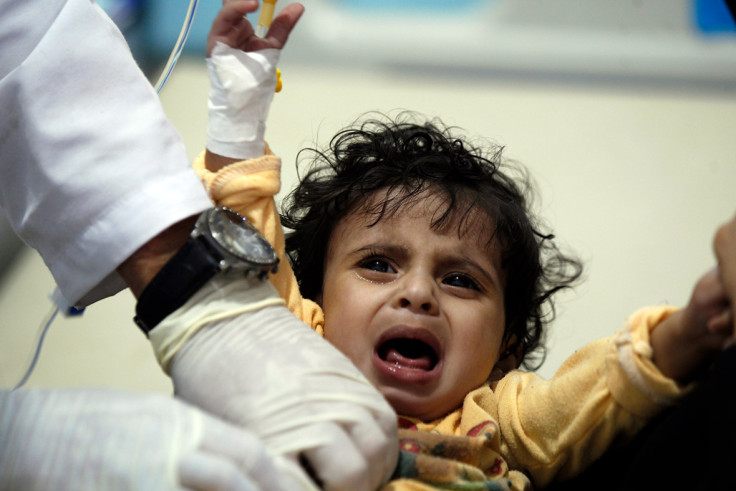Cholera claims 1,300 lives in Yemen as epidemic spreads rapidly
Unicef and WHO waging grim battle to contain outbreak in conflict-ravaged nation.
More than 1,300 people have died - one quarter of them children - with the death toll expected to rise as Yemen faces the worst cholera outbreak anywhere in the world, the United Nations has said.
Suspected cases have exceeded 200,000 and the number is increasing at an average of 5,000 a day.
In a joint statement, the United Nations Children's Fund (Unicef) Executive Director, Anthony Lake, and World Health Organization (WHO) Director-General Margaret Chan said they were doing everything they could to stop the outbreak from spreading.
"This deadly cholera outbreak is the direct consequence of two years of heavy conflict," the UN officials said.
"Unicef, WHO and our partners are racing to stop the acceleration of this deadly outbreak," they added.
To make matters worse, an estimated 30,000 local health workers who were trying to put an end to the epidemic have not been paid their salaries for nearly 10 months.
Yemen's health, water and sanitation systems have collapsed after two years of conflict between government forces and Houthi rebels. Around 14.5 million people have been cut off from regular access to clean water and sanitation.
Hospital corridors are lined with sick children and elderly patients, as there aren't enough beds to accommodate them and there is a severe food shortage. This has led to a rise in the rate of malnutrition making children even more vulnerable to cholera.
The UN said it was deploying rapid-response teams to go house-to-house telling people how to protect themselves.
Most of those infected might show mild symptoms but those stricken seriously can die within hours if left untreated.
The war has left around 18.8 million people of Yemen in dire need of humanitarian assistance and almost seven million are staring at a famine.

© Copyright IBTimes 2024. All rights reserved.





